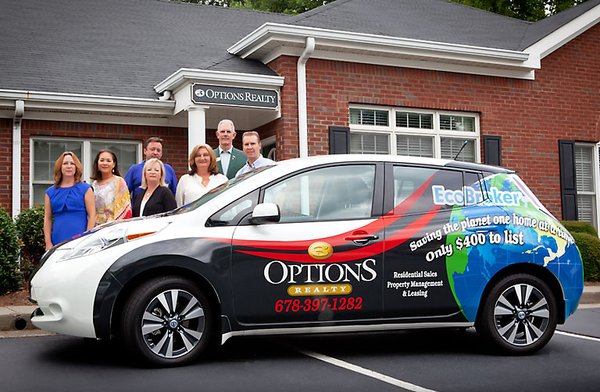Call us Now
678-397-1282

Dec 21,2015
We are beginning to recognize that the sun and the rain are consequential resources, not simply environmental inconveniences. Some of us recognize the unique and irreplaceable qualities of our topsoil, and understand that it is being washed and blown away due to poor human stewardship of the land resulting in systematic destruction of our delicate watersheds.
We like to speak of things renewable as we grow to appreciate the dire need for recycling to preserve our precious and dwindling natural resources. Daily, more and more of us are learning to change out power-ravenous appliances and light bulbs for less energy-hungry ones. We want low-flow plumbing fixtures and extra insulation. Many of us are seeking more economical means of transportation. But with these initiatives we scratch only the surface, because disciplined, sustainable living is so much more.
We should therefore be mindful not to be too proud of ourselves so quickly that we become content that we have done enough. The tendency to do so would be easily understood though since the art of sustainable living has been virtually nonexistent throughout most of American history. Indeed, this has been so even since the early settlement days, and in those days the solutions mentioned above did not yet have problems to solve—for we had only just commenced down the path of environmental recklessness, with little vision for our destiny.
Today’s sustainability frustrations have been brought about by the mindset of a people virtually disconnected from the land. We have treated this land as though it were a reproducible commodity, rather than the precious, fragile blessing that it is. Indeed, a sustainable lifestyle is about an appreciative attitude for the abundance of natural resources, commitment to a balance in use and conservation, and to a demand for a quality of permanence in the things we build with these resources, if for no other reason than in the interest of posterity.
You may be surprised to discover that the hinge-pin of the whole problem of sustainability has to do with perpetuation of the family institution. If you doubt this, you can begin to glimpse this reality by looking back at first generation American ancestry. A lineage that left behind in Europe a well ensconced way of life, one built on strict social class, where it was nearly impossible for one to ascend out of commoner status—one born to a cobbler, became a cobbler. And a child, whose father was a master mason, would have little chance but to study to become a mason, or at best another sort of building tradesman. The prevailing social structure would guarantee that these apples of the new generations would not fall far from the tree. In the new world, this compulsory lifestyle would be deemed unfair by most Americans—people with an impassioned vision for something more in life—a real chance to become someone of substance, regardless of social beginning. This prevailing attitude could not germinate in the old country, but it would freely blossom in the new world full of unlimited potential and unbridled opportunity. Unfortunately, this progressive, self-serving attitude would prove to become a material part of today’s environmental sickness.
Our early ancestors arrived at a place that was virtually unused. The native people did indeed use it, but they did not lose sight of the importance of leaving a legacy of sustainability for subsequent generations. They lived connected to the earth. Conversely, European settlers saw limitless opportunity in these lands, and had no patience for the slow-moving native lifestyles, that enjoyed a pace more consistent with the natural flow of nature. The American Indians had awareness of the places in which they lived. They knew from the experiences of the elders certain things that should and should not be done to preserve the land for the grandchildren. The settlers looked upon this land as a gift from God, privileged only unto them, the chosen, fortunate few—feeling blessed that they should have happened upon it. But they did not know the land, and few ever sought to learn about it. And when settlements expanded, the government secured room for its citizenry by forcefully displacing the native peoples to lands they did not know, to places where the elders’ experiences had less meaning. The demonstrated mindset of the settlers, implied that all land was believed the same. It was not.
It would take generations for the American people to realize the damage our forefathers had been perpetrating on this land. Tragically, it would only come to be seen, not because of an awakening or a vision of the effects of our behavior on the lives of our grandchildren, but because of the behavior of past generations that had risen to haunt us directly in our present, and personal lives. Nevertheless, these few newly enlightened would rightly ask what durability we have compromised for the sake of a moment’s personal comfort, or for ego.
But because I am a “glass half full” kind of guy, I am grateful for this resurgence of concern for the earth. Nevertheless, unlike our self-centered urges, the satisfaction of which quickly spoiled the land, our movement back to appreciation of it is moving dreadfully slowly. Today, much of what we have come to label sustainable living is affordable only to the financially fortunate. But this is so only because so few demand it. Our system of free enterprise is designed to serve demand. So it is the intent of this article to awaken the need for a demand by all classes of society for permanence and a love for posterity—because only then will it be served.
Since this is so, at some point, we will have to redefine what sustainability means. Because sustainability is not about physical things alone, certainly not man made ones. It is about a way of life—one consciously connected to the earth. This means a subordination of what’s good for me for what’s good for the sustainment of civilization. Most of us understand that we require an abundance of certain natural resources to sustain a quality life, but it seems that few of us fully appreciate that it is our way that is crucial, and that if our way is balanced, sustainability takes care of itself.
A good example of an unsustainable way is the increasing tendency of professional athletes’ use of performance-enhancing steroids. The behavior of these fellows is a reflection of our society's value system, and like so many other practices, this is shortsighted and bottom-line oriented. We find this attitude pervades our lives, and we even see it in the design and construction of our living places. Most notably, since the aftermath of World War II, we have witnessed the erosion of, and in most cases a virtual disregard for, the art of home building. We have blindly watched this overflow into a kind of community development process lacking a passion and appreciation that considers the welfare of future generations. We just wanted houses, and we wanted them in an instant. We got what we wanted.
Tragically, along with the forsaken art of home building, we have forsaken the artisan himself. It once took a reasonable number of years to build a sustainable dwelling. Even here in the United States, we saw this art manifest itself in some of our early pieces, such as Jefferson’s enduring Monticello, which took some forty years to complete. Today, we could probably build a comparable structure, at least in square footage, in a year or so. This would, in part, be because of improved building efficiencies, but too large a part would be due to a convenient disregard for the art of it—because true art demands time to manifest and cannot be rushed. But the artisans that once became so, because of their inherent passion, innateness, and unique aptitudes no longer find themselves appreciated. Their productions take too long in implementation, adding unnecessarily to the bottom line. So the few souls whose artistic passions are too great to be restrained by an ungrateful society continue to grow their talents, but find themselves and their art sequestered away into unfrequented museums and off-the-beaten-path galleries. They are not invested in the development of our communities and dwelling places, and this is a tragedy of tremendous proportion.
Even today as I try to comprehend the gravity of this issue and my personal role in it, I see that I have not even demonstrated the commitment to practice what I preach here. I live in a home that I did not purchase with the thought that my children and their grand children would someday live in it. I did not teach or even encourage my children to expect to live there, and I have not learned about this land. In my defense, my behavior has been motivated by the truth that society would not look favorably upon me as a successful parent until my offspring had left my home and built one of their own—on land they do not know, and without regard for its sustainability. And now that they have moved on in life, I have a home bigger than I need for my comfortable sustainment, even though it is a humble home by local standards. It will hopefully have some intrinsic value to my estate, but this is no accomplishment, if I am to consider this my primary legacy. And what unnecessary expenditure of resources will I consume in maintaining this unsustainable concept until the day it passes to my heirs, or deteriorates into a heap of uninhabitable junk? Can I be so short-sighted as to fail to see that I am using more than my fair share of the natural resources of this earth? But more importantly, can I not see the family disconnectedness that I have generated by my way? Why don’t I do something about it?
Well, I am working on it, but the society in which I have reared a family is a powerful influence, perhaps more imposing than a caring, loving father. I am hopeful of the coming day that each and every fellow on the street consciously appreciates the air we breathe, the water we drink, and the land upon which we abide. I will be gladdened when each man has learned how to sustain and not abuse these precious resources. I will be elated when the sacredness of family returns to American life—where the elders and their wisdom are retained in the household and not jettisoned off to a stranger’s guardianship, and when the children envision living in the same great place that their grandparents built generations ago—one built with love, care, and a vision for tomorrow. I dream of the coming time that the children are inspired to learn to know the land such that they accept their singular responsibility of stewardship. Then and only then, will we, as a society, be able to return to a sustainable existence. I fully believe this will occur. My only wish is to see it happen sooner than later. And so I wrote this piece.
A father
Dan Wilhelm
ABR, ABRM, CRB, GREEN, SRES, RMP, MPM, EcoBroker®
http://www.3optionsrealty.com
Phone: 678-397-1282

If you have been rummaging through web results for “property management companies near me,” then you are at the right place. 3 Options Realty’s property managers in Atlanta are experienced and trained to deliver top-tier service. Call 3 Options Realty to speak with a friendly representative today to learn more about our property management & real estate services. We are ready to take your call.

We use professional market research to determine fair-market rent, and we use broad market advertising to reach a large audience. Our agents will also help you prepare your property and skillfully present your property. Prospective tenants will undergo comprehensive interviews and background screening before we negotiate with them the rental agreement using our proprietary, attorney-reviewed forms.